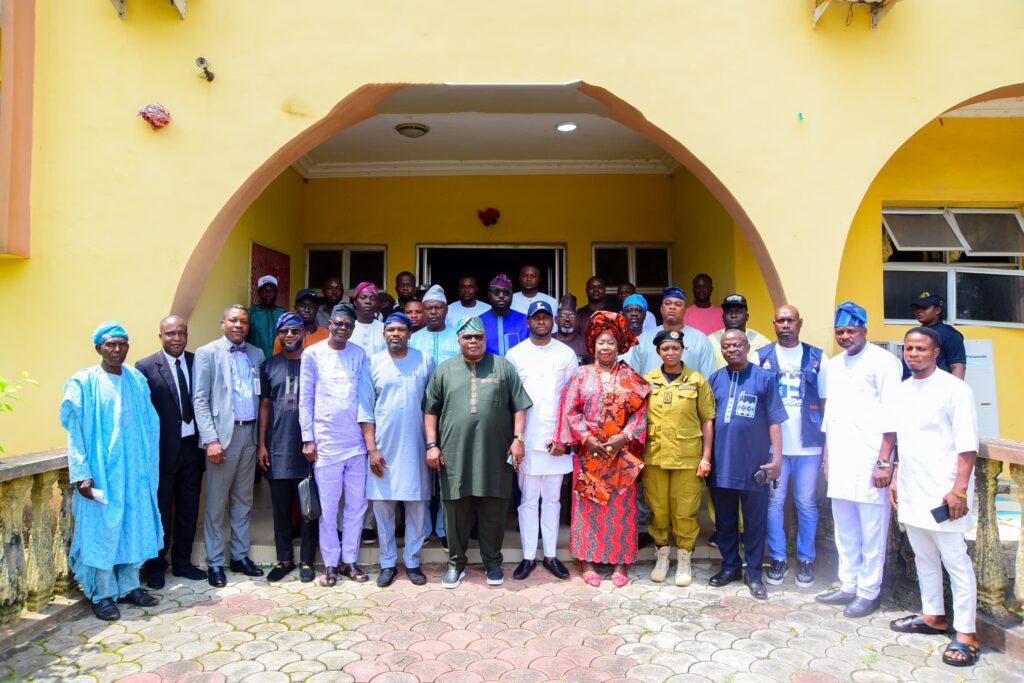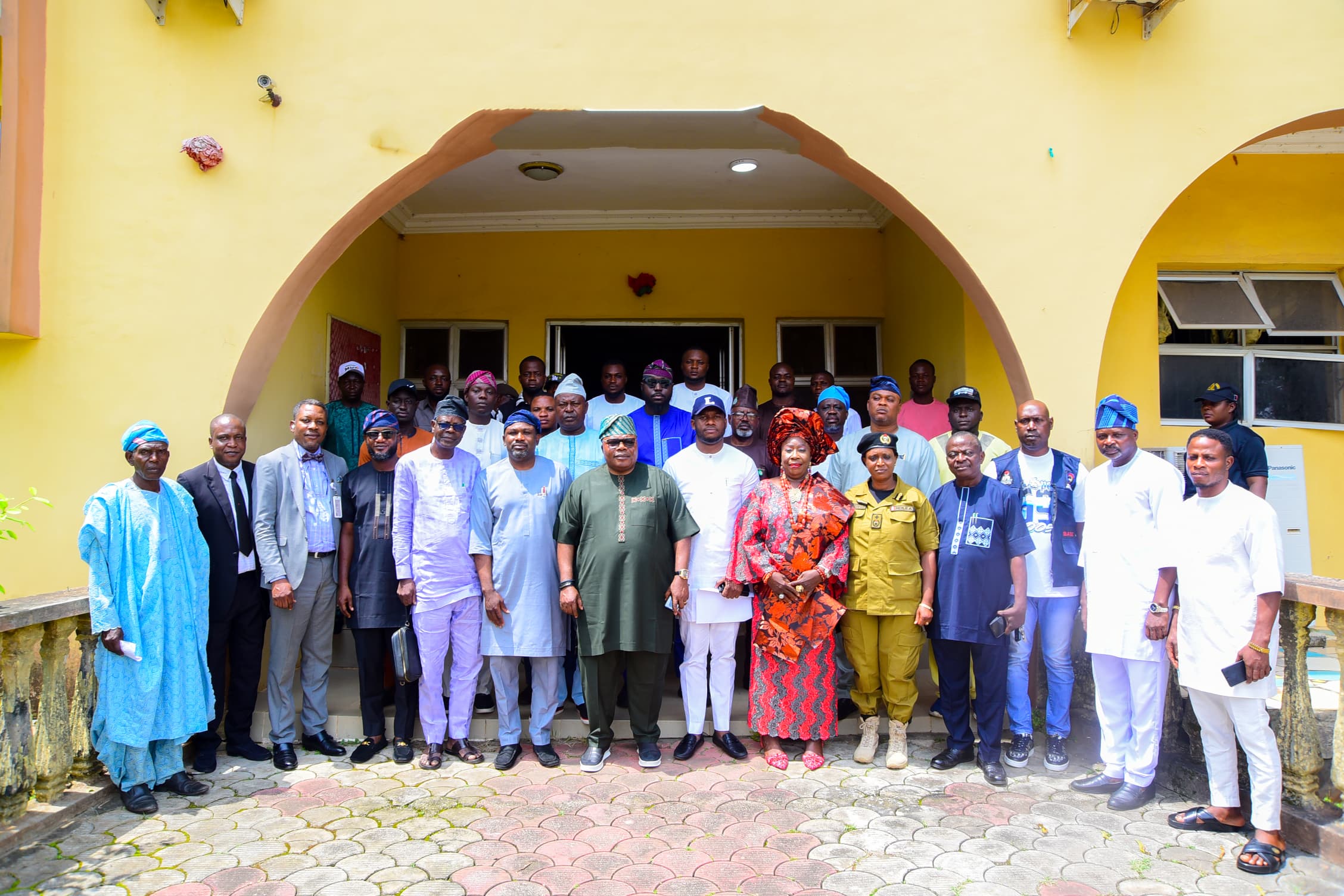Ondo Assembly holds public hearing on bills to tackle cultism, establish coastal/ waterways Mgt Agency
By Elizabeth Oyeniwa
The Ondo State House of Assembly on Thursday held a public hearing on two crucial bills ,a Bill for a Law to Provide for the Prohibition of Unlawful Societies and Cultism in All Learning Institutions and Communities and a Bill for a Law to Establish the Ondo State Coastal and Waterways Management Agency.

The event, held at the Assembly Complex in Akure, brought together critical stakeholders, including principal officers and members of the House, the State Commissioner for Education, Prof. Igbekele Ajibefun, the representative of the Attorney General and Commissioner for Justice, Dr. Kayode Ajulo (SAN), traditional rulers, youth representatives, civil society groups, and security agencies.
In his opening remarks, the Speaker of the House, Chief Olamide Oladiji, emphasized the importance of participatory lawmaking, noting that the Legislature cannot function effectively without public input.
“We are here today to deliberate on two very important bills. The idea behind this public hearing is for every stakeholder to be part of what we are doing. The House makes laws for the Sunshine State, but we cannot do it in isolation. Every major stakeholder across districts must be involved so that the laws we make reflect the will and aspirations of the people,” the Speaker stated.
He explained that the proposed bill on the prohibition of unlawful societies and cultism seeks to repeal the existing law enacted in 2006 to align it with current realities.
Tracing the evolution of cultism from the 1950s to its violent modern form, the Speaker noted that the menace has become a major social and educational threat.
“Cultism has eroded the moral foundation of our educational system and endangered lives. To achieve lasting change, we must adopt a multi-stakeholder approach involving government, parents, traditional rulers, religious leaders, school administrators, and civil society,” he added.
Speaking further, Oladiji described the bill establishing the Ondo State Coastal and Waterways Management Agency as a visionary step toward harnessing the state’s maritime potential.
“The creation of the coastal agency is not merely a legislative exercise but a vision for social inclusion and sustainable development. It aims to unlock the immense potential of our natural resources while safeguarding our coastal heritage,” he said.
He encouraged participants to contribute meaningfully to the discussions, stressing that their insights would shape effective and people-centered legislation.
Earlier, the Deputy Parliamentary Secretary and sponsor of the Coastal and Waterways Management Agency Bill, Primate Oluwatoyin Allen, lauded Governor Lucky Aiyedatiwa for maintaining peace in the state and initiating development projects.
He described the two bills as timely and essential to the state’s socio-economic and educational growth.
“If these laws are passed and effectively implemented, they will bring numerous benefits to society. Many young people join cults out of ignorance, but the consequences are often tragic , from disrupted education to loss of life. This law will serve as a deterrent and promote discipline and moral values in our institutions,” Allen explained.
On the Coastal and Waterways Management Agency Bill, the lawmaker stressed the need to establish a regulatory body to manage, protect, and develop the state’s coastal and riverine areas.
“Our waterways are vital to trade, transport, and security. Unfortunately, many have become blocked or degraded. With this agency in place, it will tackle vandalism, kidnapping, and other crimes in the coastal region. The agency will also collaborate with security operatives such as the Navy, Marine Police, and local surveillance teams through a proposed Coastal Guard Unit to enhance safety and surveillance,” he said.
He added that the bill covers the entire Ondo South Senatorial District, including Okitipupa, Ilaje, Ese-Odo, and Irele, where waterways serve as key transport and livelihood channels.
Stakeholders present at the public hearing unanimously endorsed the two bills, describing them as critical to social order and sustainable development in the state.
On the Cultism Prohibition Bill, participants agreed that the scourge has reached an alarming level, particularly among students, and must be confronted decisively. They urged parents, teachers, and community leaders to intensify sensitization efforts and continuously engage young people on the dangers of cultism.
They also described cultism as a capital social offense that should attract strict penalties to serve as deterrence.
Regarding the Coastal and Waterways Management Agency Bill, stakeholders said its passage would strengthen environmental protection, boost economic activities, enhance security in riverine communities.

COMMENTS